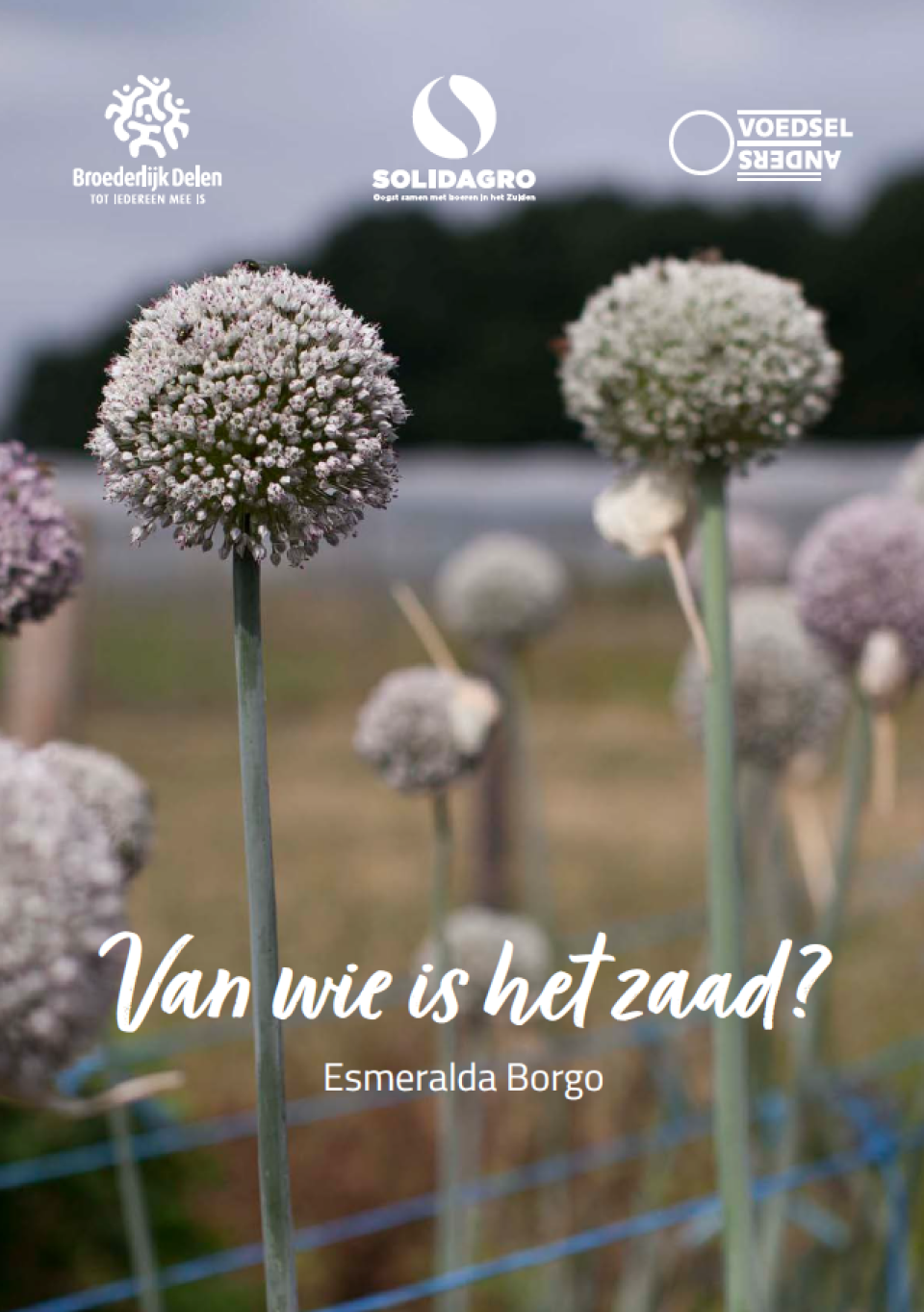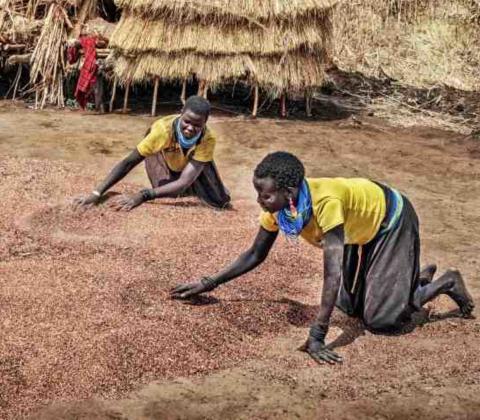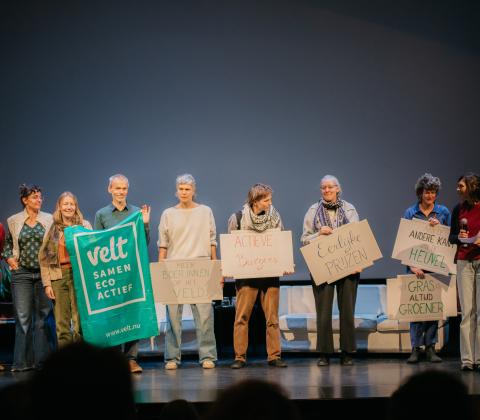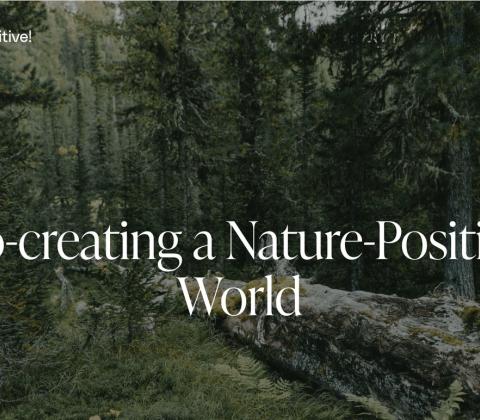[For English: see below]
We lanceren met trots het diepgravende dossier “Van wie is het zaad?”. De brochure biedt een uitgebreide analyse van de hedendaagse zaadveredeling en werpt een kritisch licht op de machtsdynamieken die onze voedselvoorziening beïnvloeden. Esmeralda Borgo schreef het dossier in samenwerking met vertegenwoordigers van Broederlijk Delen en Solidagro en organisaties in het Zuiden zoals CENDA uit Bolivië en MASIPAG uit de Filipijnen.
De brochure belicht hoe zaadveredeling, een praktijk die eeuwenlang door boeren gebeurde, steeds meer onder invloed komt te staan van grote agrochemische bedrijven. Borgo onderzoekt hoe traditionele methoden van zaadvermeerdering en -veredeling bedreigd worden door allerlei eigendomsrechten. Ze laat zien hoe technologieën zoals genetische modificatie vooral ‘interessant’ zijn om het verbod op het patenteren van levende planten te omzeilen. Het dossier beschrijft hoe wereldwijde regelgeving voor zaadregistratie en -certificatie, onder het mom van ‘kwaliteit’, het eigenaarschap over onze zaden in handen duwt van de agro-industrie.
De brochure is doorspekt met levendige getuigenissen uit Noord en Zuid en laat zien hoe boerenbewegingen wereldwijd, van Guatemala over Europa tot Indonesië, zich verzetten tegen deze ontwikkelingen. “Van wie is het zaad?” is daarom meer dan een analyse, het is een oproep tot actie: voor een landbouwsysteem dat de biodiversiteit respecteert, boerenrechten beschermt en voedsel produceert in harmonie met mens en natuur.
Lidia Paz Hidalgo (CENDA): “Wie plantenziekten wil voorkomen aan de hand van gecertificeerde zaden heeft een eenzijdige kijk op het agrarisch ecosysteem. Om de verspreiding van plantenziekten te vermijden, moet je niet alleen naar het zaad kijken. Zaad groeit in de bodem en het gewas staat in interactie met het omringende ecosysteem. Onze gemeenschappen hebben daar veel kennis over, maar dat wordt straal genegeerd.”
Grietje Raaphorst (Nordic Maize Breeding): “Gewoon al het idee dat er mogelijk een bedrijf een patent heeft op de eigenschappen waar je zelf op veredelt, heeft een afschrikkend effect. De patentering van eigenschappen leidt tot een angstcultuur.”
Charito Medina (MASIPAG): “Genetisch gemodificeerde organismen mogen gepatenteerd worden. Ons gemeengoed wordt op die manier eigendom van de zaadindustrie die er een patent op neemt. Zo gaan zij ons voedselsysteem steeds meer controleren.”
Download de brochure (NL)
Voor verdere vragen staan auteur Esmeralda Borgo en beleidsmedewerkers Elisa Tondeleir van Solidagro en Emile Arinaga van Broederlijk Delen je graag te woord.
Esmeralda Borgo
e-mail: esmeralda.borgo@voedsel-anders.be
telefoon: +32 496 84 47 10
Emile Arinaga
e-mail: emile.arinaga@broederlijkdelen.be
telefoon: +32 495 70 73 05
Elisa Tondeleir
e-mail: elisa.tondeleir@solidagro.be
telefoon: +32 3 361 43 82
English version
'Who really owns the seeds?' This brochure offers a comprehensive analysis of contemporary seed breeding and casts a critical light on the power dynamics that influence our food supply. Esmeralda Borgo wrote the brochure in collaboration with Belgian organizations Broederlijk Delen and Solidagro, and organizations in the Global South such as CENDA from Bolivia and MASIPAG from the Philippines.
The brochure highlights how seed breeding, a practice practiced for centuries by farmers, is increasingly under the influence of large agrochemical corporations. Borgo examines how traditional methods of seed propagation and breeding are threatened by various property rights. She demonstrates how technologies like genetic modification are primarily 'interesting' in circumventing the ban on patenting living plants. The brochure describes how global regulations for seed registration and certification, under the guise of 'quality', are pushing ownership of our seeds into the hands of the agribusiness. The brochure is interspersed with vivid testimonies from North and South and shows how farmers' movements worldwide, from Guatemala to Europe to Indonesia, are resisting these developments. "Who really owns the seeds?" is therefore more than an analysis; it's a call to action: for an agricultural system that respects biodiversity, protects farmers' rights, and produces food in harmony with people and nature.
Lidia Paz Hidalgo (CENDA): "Those who try to prevent plant diseases through registration, certification, and control take a one-sided view of the agricultural ecosystem.To prevent the spread of plant diseases, you can’t just focus on the seed. Seeds grow in the soil, and the crop interacts with the surrounding ecosystem. Our communities have a great deal of knowledge about this, but it is completely ignored."
Grietje Raaphorst (Nordic Maize Breeding): "Just the idea that a company can hold a patent on the traits you’re working with has an intimidating effect. Patenting traits creates a culture of fear."
Charito Medina (MASIPAG): “GMOs can be patented. What once belonged to everyone—our commons—becomes the property of the seed industry, which patents it. That’s how they gradually take more control over our food system.”



